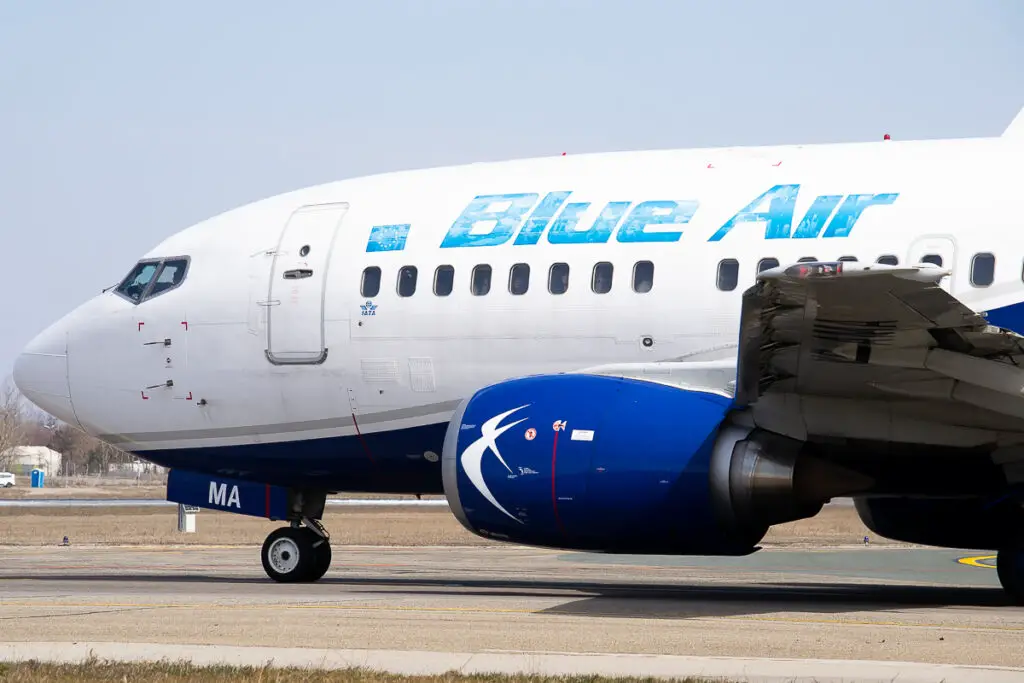The European Commission has opened an investigation to assess whether certain Romanian support measures in favour of Blue Air are in line with European Union state aid rules. The company was the second largest airline in the country when it ceased operations in September 2022.
Romanian market now has three main players: Wizz Air, which was already the largest operator, Ryanair and the flag carrier TAROM.
See also: Europe’s last indie low-cost carrier just went bust. What now?
Financial problems and aid to Blue Air
Until the suspension of its flights, Blue Air had bases in four cities in the country (in Bacău, Bucharest, Cluj and Iași) and another in Turin, Italy. It operated a fleet of fourteen Boeing 737s, five of which were 737 MAX 8s. It also had a lease commitment for another five aircraft with Air Lease Corporation.
At that time, the national authorities temporarily suspended its commercial operating licence due to its difficult financial situation. Blue Air’s financial problems started in 2019, but worsened significantly since the beginning of the pandemic.
In August 2020, the European Commission approved two measures to support the airline. First, it granted a public guarantee of 28 million euros to compensate for the damage caused by the situation of the industry, severely affected by the mobility restrictions.
It also granted a public guarantee of 34 million euros on a rescue loan to partially cover liquidity needs for the next six months. Romania assured that the guarantee on the loan would be terminated after this period, or it would commit to report a liquidation plan or a comprehensive restructuring plan.
European Commission to investigate the aid
The Romanian state submitted a first plan in April 2021. So far, it has already been updated several times. It includes an extension of the duration of the guarantee on the rescue loan to six years, including the initial six months. This would allow the aid to be repaid until 2026.
The European Commission will now assess the compliance of the aid measures with supranational rules. In particular, it will analyse whether or not the restructuring plan can restore the company’s long-term viability without the need for continued state aid and without requiring new aid.
In addition, it will investigate whether the company’s contributions to the restructuring costs are real, sufficient and effective to ensure that the aid is proportionate, as well as whether adequate measures are in place to limit the distortions of competition created by the restructuring aid.
See also: Air Malta to be dissolved by the end of the year and replaced by a new national carrier














